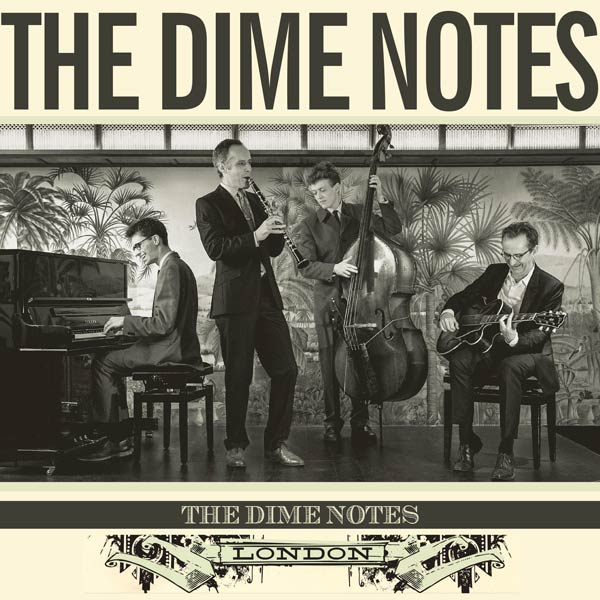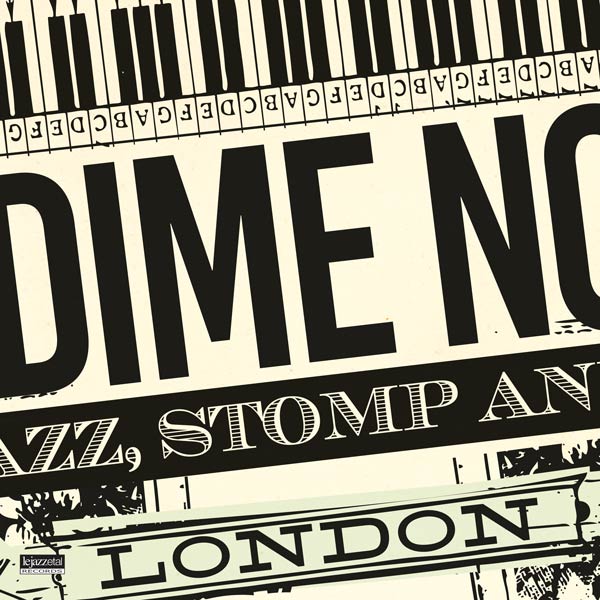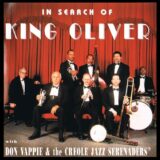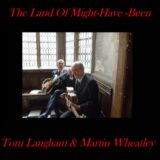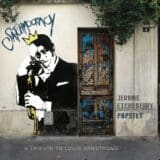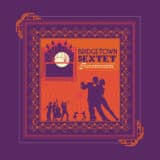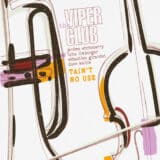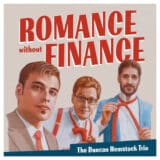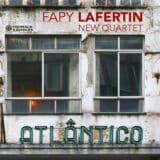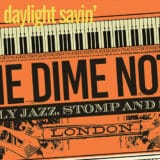The Blue Book of Storyville by Max Easterman in Vintage Jazz Mart
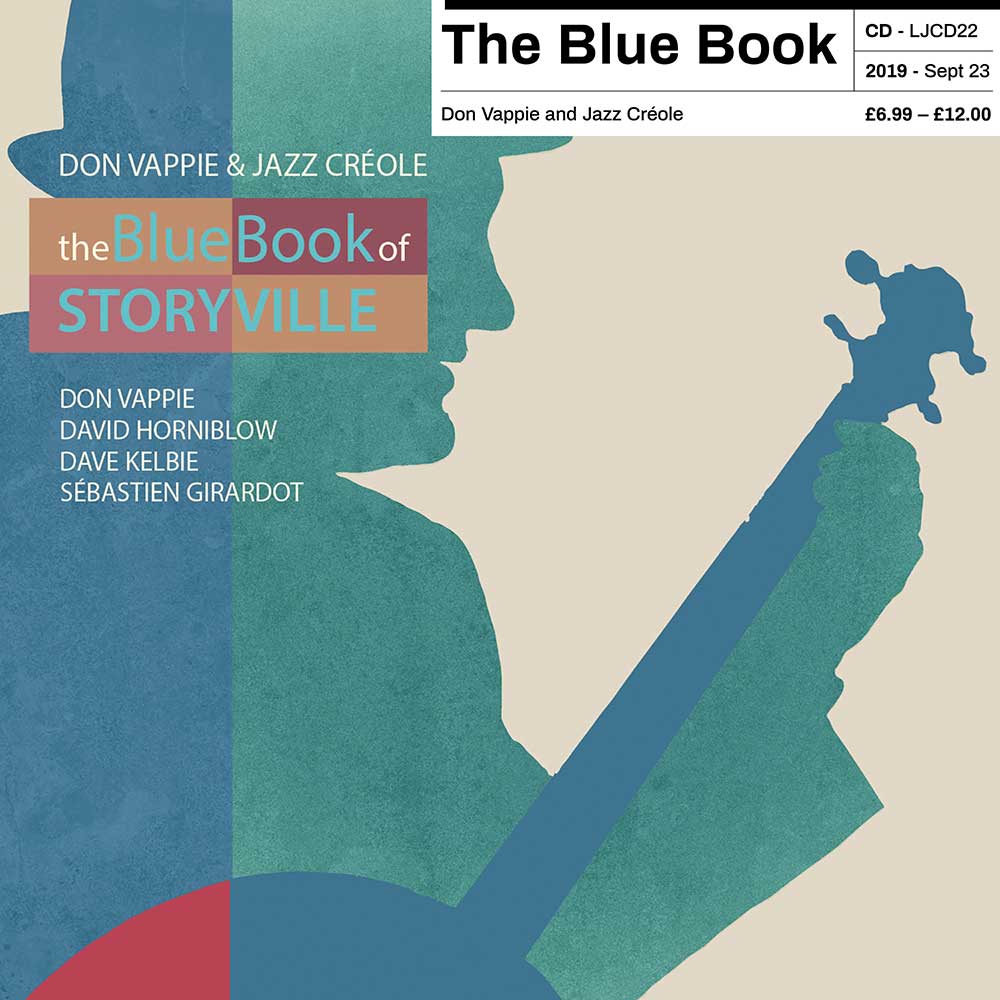
The Blue Book of Storyville by Don Vappie
http://www.vjm.biz/reviews.html
Listen and buy The Blue Book of Storyville HEREe/
VINTAGE JAZZ MART 01.07.2020
The Blue Book of Storyville by Don Vappie and Jazz Creole
I first encountered Don Vappie at the 2016 French Quarter Jazz Festival in New Orleans, in the plush surroundings of the Hotel Royal. He was playing modern jazz guitar duets with Steve Masakowski, and very fine they were too. Then, out of nowhere, he produced a banjo and gave us something quite other: a series of Cajun solos, music that was very new to me. Three years later, I caught up with him again: he was on stage in Jackson Square with his regular band, the ‘Créole Serenaders’, and explaining between numbers his determination to rehabilitate the banjo, bring it out of the obscurity of the rhythm section and let it shine as a front-line solo voice. And that is precisely what he does on this CD, recorded in London with David Horniblow on clarinet, Dave Kelbie, guitar and Sébastien Girardot on bass.
Vappie is a Créole, his family has been in New Orleans since before the Louisiana Purchase and his dedication to jazz from that city is not only in playing it: he teaches guitar at Loyola University and has worked on many other educational programmes, from the Lincoln Center in New York via Carnegie Hall to the Smithsonian Appalachian State University. He has performed with Peggy Lee, Eric Clapton, Diana Krall and many more; he has played French West African and Caribbean music, funk, soul and modern jazz…but has for some time now focused on his New Orleans roots: the banjo, then, is in expert hands.
The music on this CD is as varied as you’d expect from a New Orleans master: traditional Creole melodies, tunes by local composers (Morton, Ory, the ‘New Orleans Rhythm Kings’), and many compositions of his own. You may imagine from a quick scan of some titles (Eh la Bas, Mo Pas Laimé Ça, Les Oignons) that the music will be routine, hackneyed even. Not so, never so: Don Vappie is a true original and every tune is infused with a fire and inspiration that makes it a virtuoso performance. And his own compositions are a tribute to the Crescent City’s tricentenary: playing banjo, he says, ‘in a more melodic role, as I perceived it was in some of the Caribbean and African styles.’
The CD kicks off with what, in other musicians’ hands, might be just another version of a very old friend, Eh la bas, but Vappie’s coruscating habañera banjo rhythms and cross-rhythms with Girardot’s bass make this as exciting and original a performance as you could wish – with a finely crafted banjo solo to add just that little extra something, and played at less than the headlong pace of many other recordings. The title track The Blue Book of Storyville is one of Don Vappie’s originals, played with a stately swing and featuring one of his lovely vocals and some soaring – and searing – clarinet from David Horniblow.
The Blue Book, of course, was the notorious directory of Storyville ‘sporting houses’, and I can easily imagine Vappie’s music being played alongside the older songs in Mahogany Hall! Older songs like Buddy Bolden’s Blues, which opens with a lengthy banjo cadenza, before swinging into a beautifully relaxed performance, with some excellent clarinet ‘fills’ in the vocal choruses and ending with a virtuoso banjo coda. La Ville Jacmel is another Creole song, from Haiti, whilst the better-known Mo Pas Laimé Ça is New Orleans born bred. Both are played with the jaunty habañera rhythm so beloved of Jelly-Roll Morton; then the second song breaks into a straight 4/4 beat for a fine clarinet finale. Port Bayou St John is a Vappie original, named from the town on St Lucia and is in a quite different mode, based on a rock idea, according to Vappie himself and played with the Cuban-style ‘tresillo’ rhythm; whilst Couleur de Créole, also composed by Vappie, features a long, flowing clarinet line, which he says is based on an early New Orleans form that appears in, for example the main chorus of Alphonse Picou’s High Society. Playing in a small group like this allows Vappie to make the banjo a genuine melody instrument: he plays with a fluency and precision that is quite stunning…and nowhere better than on Basin Street Blues: the melody lead has some lovely variations and the vocal very effectively plays rubato with the chordal base at several points.
I Would If I Could is the last of Don Vappie’s own compositions; it’s an upbeat, happy-go-lucky tune, played in 4/4 time with a great swing and contrasts very effectively with the next track, Abandon, a haunting melody in waltz-time, from Martinique. The banjo is a masterpiece of clean picking and clever trills, and there’s great fluid clarinet from Horniblow. C’est l’autre Cancan refers not to a dance (Creole or otherwise) but to a gossipy woman, though Jelly-Roll Morton suggests the word is much more vulgar than that. The tune is credited to Kid Ory, though is obviously much older than his 1944 recording of it. Red Wing and Misu Banjo are both traditional tunes: the former has a long pedigree of performance by folk and jazz musicians alike, but few of the latter have made it swing like this group. Tin Roof Blues and the traditional Créole Blues are played as a medley, introduced once again with a lovely unaccompanied banjo solo; Horniblow’s clarinet is both passionate and reflective by turns on the first title, while Vappie sings a fine Creole-French vocal on the second, wrapped by the riff chorus from Tin Roof as a ride-out. Panama is the old standard, but played here with an habañera rhythm in the opening and third strains, as it was apparently intended when written in 1912. It’s taken at a much more relaxed tempo than many versions, which allows David Horniblow to give full emphasis to melody in the final strain. The CD closes with two more traditional Creole numbers, Les Oignons and Fais Do Do: Don Vappie sings both in Créole patois and turns in a lengthy and punching solo on the former; the second title is a lullaby played in 3/4 time and is a delightful solo vocal and banjo performance.
Seeing Don Vappie on stage is an experience in so many ways, not least his ability to convey passion, humour and that special musicianly spark that makes his performances so exciting. This CD is beautifully recorded and although I haven’t said much about them till now, I must mention the fine guitar backing provided by Dave Kelbie and bass lines from Australian Sébastien Girardot. These four musicians form a tightly-knit ensemble, which is perfect for Don Vappie’s material and makes it as good as anything I’ve heard from him ‘live’. This is a terrific CD.
MAX EASTERMAN

